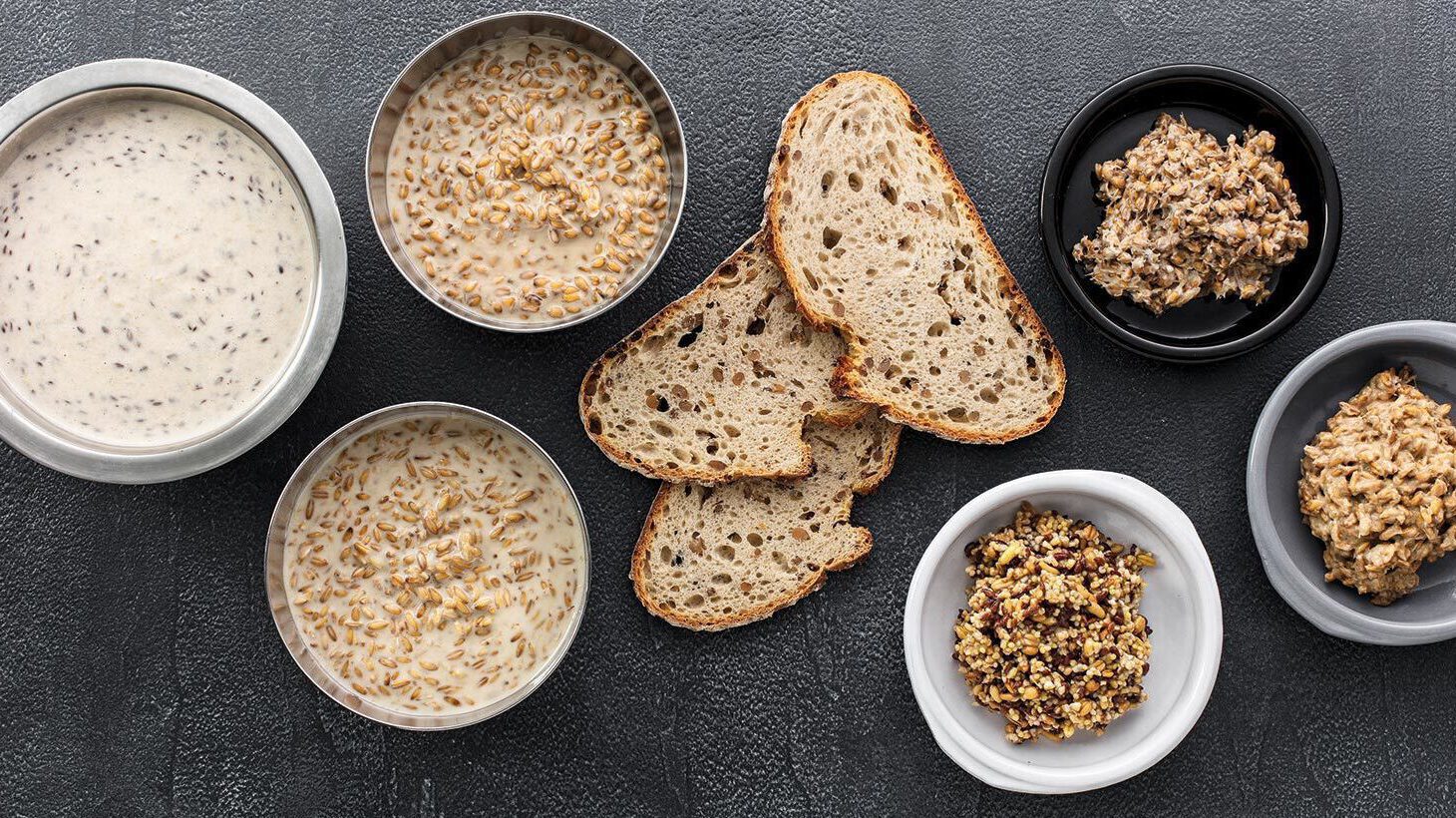Is bread unhealthy? Fattening? The right ingredients make the difference!
Bread is often labeled as 'fattening', and is therefore often banned from many menus. However, bread fits perfectly into a balanced diet, when the right choice of flour and other ingredients is made. For example, the dough can be enriched with a handful of grains or seeds that provide the body with valuable fiber. We would like to introduce you to six ingredients that will help you enrich your dough using Böcker sourdough products.
Linseed

These tiny brown seeds are best known for their digestive properties. Due to the mucus in the shell of the seed, they swell up in the intestine and are therefore ideal as a natural remedy for constipation. They contain omega-3 fatty acids that strengthen the immune system and reduce inflammatory processes in the body. If you are baking yourself, we recommend adding the seeds in a crushed form for an even better and healthier result.
Sunflower seeds

Sunflower seeds are a real vitamin bomb, with a lot of vitamins A, B, D, K and E. In addition, these seeds of the sunflower plant contain more than 90% unsaturated fatty acids that have a particularly positive effect on the blood vessels and the heart. The high calcium content of the kernels is good for the bones and teeth. As a valuable source of iron and magnesium, they contain many of the nutrients and minerals essential for proper cell and muscle function. In addition to the health factor, we do not forget the delicious taste.
Oats

It is no secret that oats, oatmeal or oat flakes are a very nutritious addition to bread. And that is more than justified! Thanks to its high-quality nutrients and high fiber content, oats leave us feeling full for a long time and provide the body with essential proteins and minerals. As a true "beauty product", they help make our hair and skin glow. This is due to the high content of zinc, manganese, copper and B vitamins. The gut also welcomes oats, for their nutritional boost. However, oats are classified as allergens, because oats from conventional cultivation are generally contaminated with, for example, wheat or rye. However, we only use gluten-free oat ingredients.
Pumpkin seeds

Just like oat flakes, the seeds from the pumpkin's pulp contain a number of important nutrients such as zinc, iron, selenium and magnesium. In addition, they have a special antioxidant effect, stimulating cell renewal. Despite the high fat content, the seeds also have a positive effect on the heart and lower cholesterol, which helps regulate blood pressure. In bread they give the bread a nice crunch, or can be used as a nice topping on the crust.
Walnuts
Walnuts are also referred to as 'brain food'. They are rich in omega-3 fatty acids and packed with valuable antioxidants. Eating walnuts not only lowers LDL cholesterol levels, but it helps us protect our bodily functions. In addition, the bread gives it a unique taste: The nuts give the dough a slightly darker color and a sharp, nutty aroma. Roasted walnuts are especially good in more rustic breads, such as whole grain rye or spelt.
Almonds
Whether ground or whole, almonds in a bread provide valuable protein and give the bread a pleasant nutty flavor. This particularly low-fat nut contains a large number of minerals, such as magnesium, calcium and folic acid, which have a positive effect on our energy and keep us sharp. The vitamins E and B ensure a healthy metabolism. For particularly nutrition-conscious bakers, some of the flour can be replaced with ground almonds. The bread contains considerably less carbohydrates and is especially pleasant for people on a low-carbohydrate diet.
Sourdough pastes

Our Böcker sourdough pastes are ideal for the production of bread with seeds, fresh cereal shoots or whole grains. The refined raw materials in the sourdough are naturally preserved with salt and vinegar and give the baked products a slightly sour taste. The range consists of four different sourdough pastes: multigrain, wheat germ, puffed rye and potato. The multigrain pasty sourdough with linseed, sunflower seeds and millet is ideally suited for the preparation of healthy multigrain buns. Thanks to the use of pastes, the (industrial) baking process can be greatly simplified.
